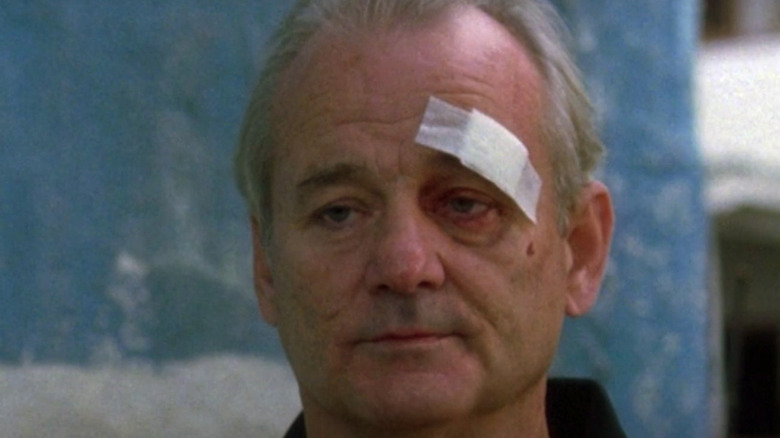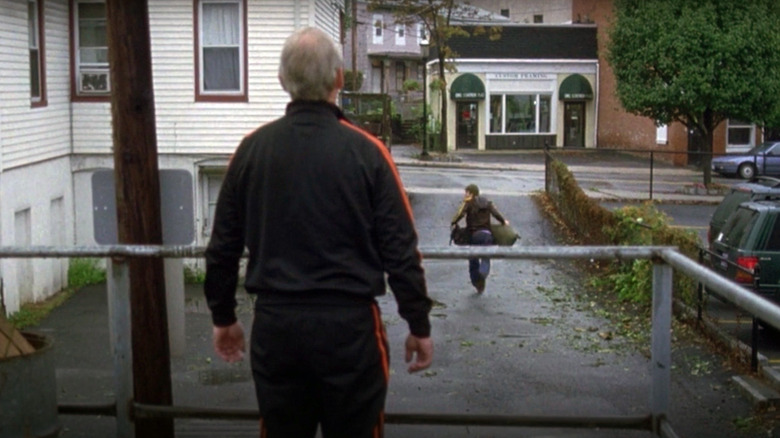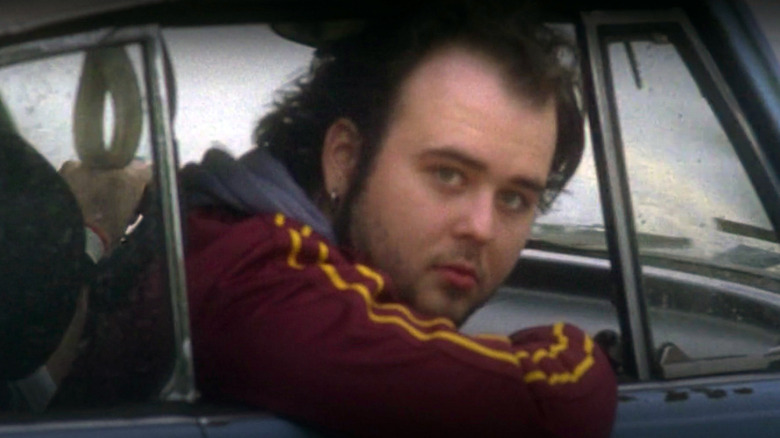The Ending Of Broken Flowers Explained
Whatever your idea of a Bill Murray movie is, it probably doesn't resemble "Broken Flowers." The collaboration between Murray and director Jim Jarmusch premiered in 2005, and although it wasn't the first time Murray carried a dramatic film — he had already been nominated for a Best Actor Oscar for "Lost in Translation" in 2004 — "Broken Flowers" is definitely one of most unique among Murray's films.
To be fair, Jarmusch had a lot to do with that. The director is an indie filmmaker who traditionally makes the audience work a little harder to enjoy his films, and "Broken Flowers" is no exception. One Rotten Tomatoes reviewer described Jarmusch's style "about questions, not easy answers," and called it "elliptical."
But that doesn't mean the central questions in "Broken Flowers" go unanswered; it just means the answers are more subtle than in a typical film. Murray plays Don Johnston, an aging bachelor who one day receives an anonymous letter from someone claiming to be a former flame, telling him he used to have a son. Johnston visits several of his exes in an attempt to get answers. Along the way, he confronts several truths about himself and the women he used to be with.
In the end, both Johnston and the audience do get something like an answer to the question of his son's identity, but it's far from satisfying.
The identity of Don's son is never explicit, but there's a strong candidate
At the end of the film, Don meets a character without a given name, who's credited only as "The Kid." This is most likely Don's son, all because he has a pink ribbon tied to his backpack. The color pink is an important symbol and visual clue throughout the film. The anonymous letter is typed on pink paper and arrives in an envelope of the same color. Later, Don discovers that one of his exes owns a pink typewriter, which makes her a likely candidate for the mother of his long-lost son. And the ribbon neatly ties everything together with a bow — almost.
Both the audience and Don have reason to doubt The Kid's identity, even with the ribbon. The Kid eventually runs away from Don, and when Don chases after him, a car drives by and another young man leans out and stares at him. Many have suggested that this individual is Don's son. He's a complete stranger with no reason to be angry with him other than the possibility that Don might be his absent father.
The Kid is still most likely Don's son, but the important thing is that he's still in doubt.
Don might get an answer, but he doesn't get closure
The true identity of Don's son is secondary to his overall predicament. What this moment means for his story is that even though he's found the most likely candidate to be his son, The Kid, he doesn't know for sure, and he probably never will. While it's possible the car passenger might actually be Don's son, it's likely that this is just his interpretation of the moment. Since he's unsure of The Kid's identity, that leaves the door open for alternative possibilities. Even something as mundane as a rude traffic interaction can make Don question everything he thinks he knows.
Don has already missed out on the first 20 years of his son's life. Even if he did have conclusive proof that The Kid was his child, he can't get that time back. Don's quest to find his real son was doomed from the start. Like any good Jim Jarmusch movie, "Broken Flowers" leaves its protagonist with more questions than he started with.


